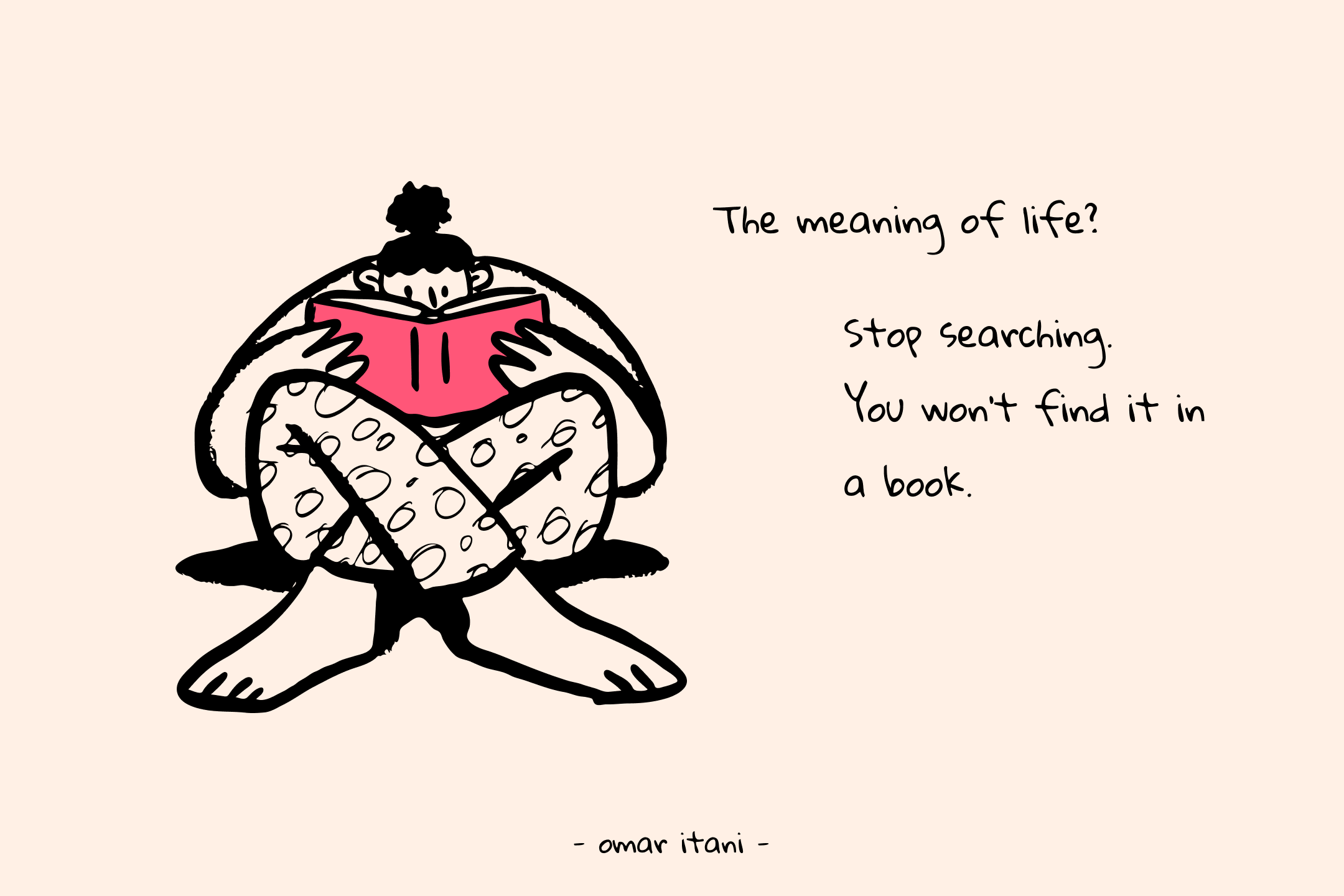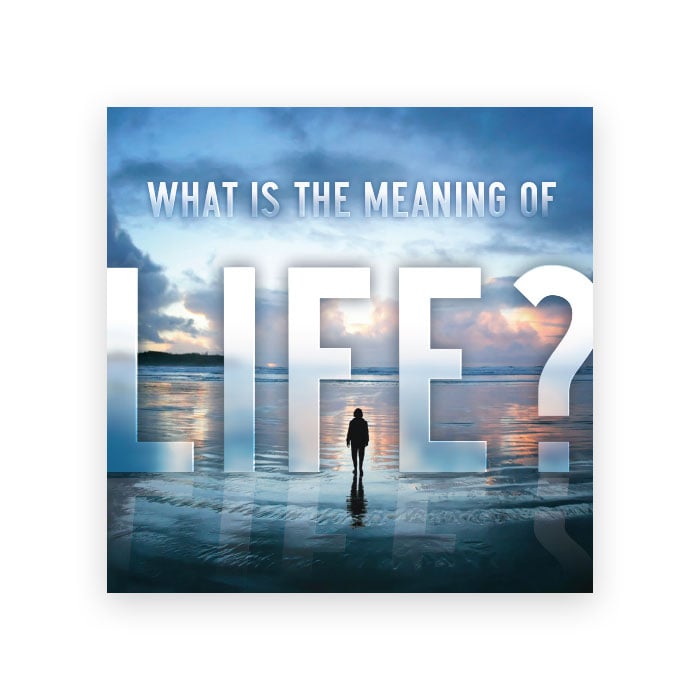The meaning of life is a philosophical question concerning the significance of existence. It’s a subject that has intrigued humans for centuries.
Delving into the meaning of life sparks a quest for purpose and understanding in our journey through the world. Throughout history, scholars, poets, and scientists have pondered this profound query, offering diverse perspectives shaped by cultural, religious, and personal beliefs.
In modern times, this question continues to inspire discussions, literature, and art, as people seek to find their place in the universe. The quest for meaning touches upon ethics, values, and our sense of self, making it a timeless and universal contemplation. As we navigate life’s complexities, the search for its meaning remains at the heart of human existence, influencing the way we live, the choices we make, and the legacies we hope to leave behind.
The Quest For Meaning
The quest for meaning in life is a journey that spans across time and space. This universal question, “What is the meaning of life?”, touches every human heart and mind. Let’s explore this profound topic through the lenses of history and culture.
Historical Perspectives
Throughout history, great minds have pondered life’s purpose. Philosophers, theologians, and scientists have all contributed to this dialogue. Ancient Greek philosopher Aristotle saw the goal of life as achieving ‘eudaimonia’, or human flourishing. In contrast, Eastern philosophies like Buddhism focus on overcoming suffering through enlightenment.
- Aristotle: Aimed for eudaimonia – a flourishing life
- Stoics: Valued virtue as life’s purpose
- Buddhism: Enlightenment as the path to meaning
Cultural Variations
Cultures around the world have their own interpretations of life’s meaning. For many indigenous cultures, life is intricately connected to nature and community. Western societies often associate meaning with personal achievement and success. Meanwhile, many Eastern cultures prioritize harmony and balance.
| Culture | Meaning of Life |
|---|---|
| Indigenous | Connection with nature and community |
| Western | Personal achievement and success |
| Eastern | Harmony and balance |

Credit: www.wired.com
Philosophical Angles
Delving into the ‘Philosophical Angles’ of life’s meaning reveals rich perspectives. Each philosophy offers unique insights. Here, we explore three key viewpoints.
Existentialism
Existentialism emphasizes personal freedom. Thinkers like Sartre believed we craft life’s meaning. This view suggests we’re responsible for our paths.
- Freedom is central.
- Choices define us.
- Meaning is self-made.
Nihilism
Nihilism challenges the notion of inherent meaning. It argues that life lacks purpose. This can seem bleak, but some find it liberating.
| Concept | Details |
|---|---|
| Life’s Purpose | Absent |
| Individual Response | Varies |
Utilitarianism
Utilitarianism promotes the greatest good. It values actions that boost happiness. This philosophy measures life by positive outcomes.
- Seek happiness.
- Maximize well-being.
- Consider consequences.
Religious Insights
Exploring the meaning of life often leads us through a rich tapestry of religious insights. Each faith brings a unique perspective, offering answers to life’s most profound questions. In this exploration, we delve into three major religious viewpoints: Buddhism, Christianity, and Hinduism, each providing a distinct path to understanding life’s ultimate purpose.
Buddhism’s Path
Buddhism teaches that life is a journey towards enlightenment. This path involves overcoming suffering through moral conduct, meditation, and wisdom. Buddhists follow the Four Noble Truths and the Eightfold Path, which guide them to Nirvana. This state is free from the cycle of birth and death.
Christian Views
Christians believe that life’s meaning is found in a relationship with God. They see Jesus’s life, death, and resurrection as central to understanding their purpose. Christians live by teachings in the Bible, emphasizing love, service, and faith. They aim for eternal life with God after death.
Hinduism’s Dharma
In Hinduism, Dharma is the moral order of the universe and a code for living that embodies duty, righteousness, and virtue. Hindus strive to achieve balance in life through Dharma, Artha (prosperity), Kama (desires), and Moksha (liberation). Life is a cycle of birth, death, and rebirth until Moksha is attained.

Credit: www.omaritani.com
Scientific Approach
The Scientific Approach seeks to answer the meaning of life through observable and measurable evidence. Scientists explore life’s origins and its purpose through various fields.
The Biological Imperative
At its core, the biological approach to life’s meaning focuses on survival and reproduction. This view sees life as a continuous loop of genetic transmission.
- Survival: Organisms strive to survive by adapting to their environments.
- Reproduction: Life aims to perpetuate species through reproduction.
This approach suggests that the meaning of life is to pass on genes to the next generation.
Cosmology And Creation
Cosmology explores the universe’s origins, focusing on how life fits into the broader cosmos.
- The Big Bang Theory explains the universe’s beginning.
- Studies suggest life is an integral part of cosmic evolution.
Understanding the universe helps us find our place in it.
Psychological Dimensions
Exploring the meaning of life often leads us down a path of psychological inquiry. The human mind seeks understanding and purpose. In psychology, several theories attempt to explain our drive for significance and fulfillment. Let’s delve into some of these dimensions.
Maslow’s Hierarchy
Abraham Maslow’s theory presents a pyramid of needs. At the base are our physical requirements like food and shelter. As we move up, we find social and esteem needs. The peak is self-actualization, the fulfillment of one’s potential.
- Basic Needs: Food, water, warmth, rest.
- Safety Needs: Security, safety.
- Belongingness: Intimate relationships, friends.
- Esteem Needs: Prestige, feeling of accomplishment.
- Self-actualization: Achieving one’s full potential, creative activities.
The Search For Happiness
Psychologists view happiness as a key component in the meaning of life. Positive emotions build resilience and drive growth. Personal achievements, relationships, and leisure activities contribute to happiness.
| Aspect | Contribution to Happiness |
|---|---|
| Achievements | Goals and success breed satisfaction. |
| Relationships | Love and friendship offer support and joy. |
| Leisure | Hobbies and rest rejuvenate the spirit. |

Credit: www.wired.com
Literature And The Arts
The quest for the meaning of life has permeated human thought across all cultures. Literature and the arts provide a rich tapestry through which humanity explores this eternal question. These creative expressions offer insight into the diverse interpretations of life’s purpose. They also reflect the values, emotions, and intellect of different times and places. Let’s delve into how narratives and artistic expressions contribute to our understanding of life’s profound meaning.
Narratives Of Purpose
Stories have been a cornerstone of human culture, offering windows into the souls of civilizations. They reveal the quests and struggles of people seeking their place in the world. Literature, from epic poems to modern novels, often centers on characters grappling with existential questions.
- Epic tales like Homer’s The Odyssey show heroes on journeys filled with trials and revelations about life’s worth.
- Philosophical works, such as Albert Camus’ The Myth of Sisyphus, discuss the struggle for meaning in a seemingly indifferent universe.
- Contemporary stories often feature protagonists who find purpose through personal growth, relationships, and resilience.
Artistic Expressions
Art serves as a non-verbal narrative, expressing what words often cannot capture. Through painting, sculpture, music, and dance, artists convey their interpretations of life’s essence.
| Medium | Example | Interpretation |
|---|---|---|
| Painting | The Starry Night by Van Gogh | Chaos and beauty in the night sky representing the turmoil and awe of existence. |
| Sculpture | The Thinker by Rodin | The deep contemplation of human nature and our place in the universe. |
| Music | Beethoven’s Symphony No. 9 | Harmony and unity as a metaphor for the human experience. |
Artists throughout history have used their media to explore themes of love, mortality, joy, suffering, and transcendence. They remind us that the search for meaning is a shared human endeavor, transcending time and culture.
Modern-day Theories
In exploring the meaning of life, modern-day theories offer fresh perspectives. These ideas stir debates and inspire deeper thinking.
Subjectivism
Subjectivism asserts that life’s meaning is not universal. Rather, it is deeply personal and varies from one person to another. This theory suggests that individuals create their own meaning through choices and experiences.
- Personal responsibility is key in defining one’s life purpose.
- Emotions and personal experiences shape one’s reality and meaning.
This perspective empowers individuals to find their own path and significance in life.
Absurdism
Absurdism explores the conflict between humans’ desire to find inherent meaning in life and the silent universe that offers no clear answers. Developed by philosopher Albert Camus, this theory highlights the absurdity of the human quest for clarity.
- Humans seek meaning and order.
- The universe remains indifferent to these searches.
Despite the apparent lack of meaning, absurdism encourages finding personal value in experiences and actions.
Personal Journeys
Embarking on personal journeys unlocks the profound layers of life’s meaning. Each path reveals unique insights, shaping our understanding of existence. Let’s explore how self-discovery and contributing to society form the mosaic of life’s purpose.
Self-discovery
Life invites us on a quest for self-knowledge. This quest is vital, like a map guiding us through life’s maze. Through self-discovery, we uncover our passions, strengths, and dreams. We learn what makes us thrive.
- Exploring new hobbies reveals hidden talents.
- Meditation and reflection foster inner peace.
- Challenges test our limits and build resilience.
Each step on this journey enriches our story, adding depth to our character. It’s not just about knowing oneself but also about crafting one’s legacy. We become authors of our own lives.
Contributing To Society
Giving back to others offers a sense of fulfillment. It connects us to the world around us. Through kindness, we contribute to a greater good. Our actions inspire change and bring joy to others.
| Activity | Impact |
|---|---|
| Volunteering | Supports communities |
| Mentoring | Guides the next generation |
| Creating Art | Spreads beauty and thought |
Through these acts, we leave footprints of compassion and hope. We build bridges that unite us. Our contributions reflect our values and beliefs. They make life richer for everyone.
Frequently Asked Questions
What Is The True Meaning Of Our Life?
The true meaning of life is subjective and varies with individual beliefs, experiences, and values. It often involves seeking happiness, fulfillment, and understanding one’s purpose.
How Do You Define The Meaning Of Life?
The meaning of life is a deeply personal concept, often linked to individual purpose, happiness, and fulfillment. It varies widely based on cultural, religious, and philosophical beliefs.
What Is The Real Purpose Of Human Life?
The real purpose of human life varies by individual, often involving seeking happiness, fulfillment, and meaning through personal growth, relationships, and contributing to society.
What Is Our Real Purpose In Life?
Our real purpose in life is a deeply personal and evolving quest, often centered around seeking happiness, fulfillment, and meaning through growth, relationships, and contributions to society.
Conclusion
Exploring the meaning of life is a journey unique to each individual. It blends personal experiences with universal questions. As we navigate through life’s complexities, finding purpose and fulfillment becomes key. Remember, the quest itself enriches our existence, urging us to live fully and reflect deeply.
Embrace this journey with an open heart and mind.
